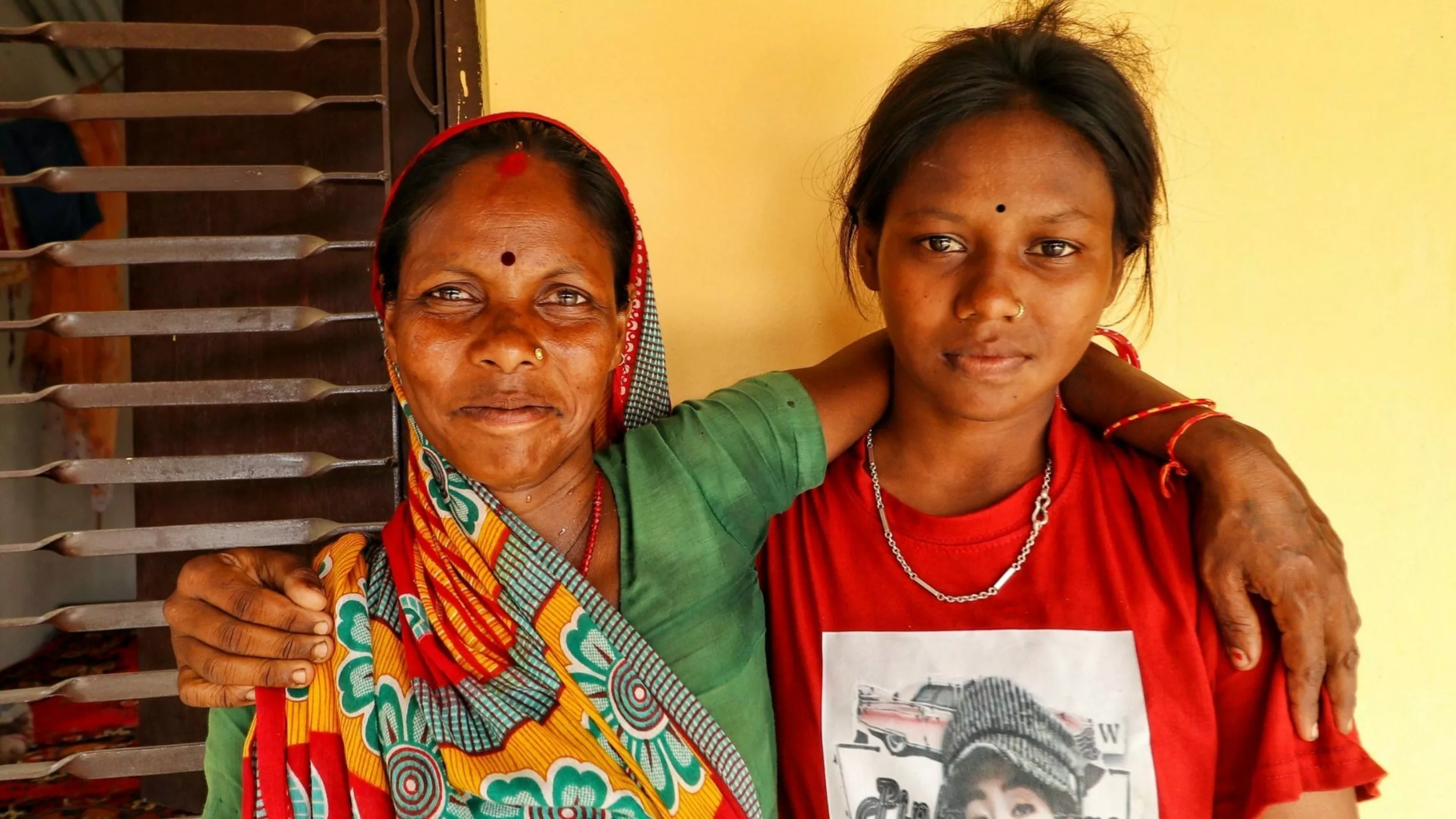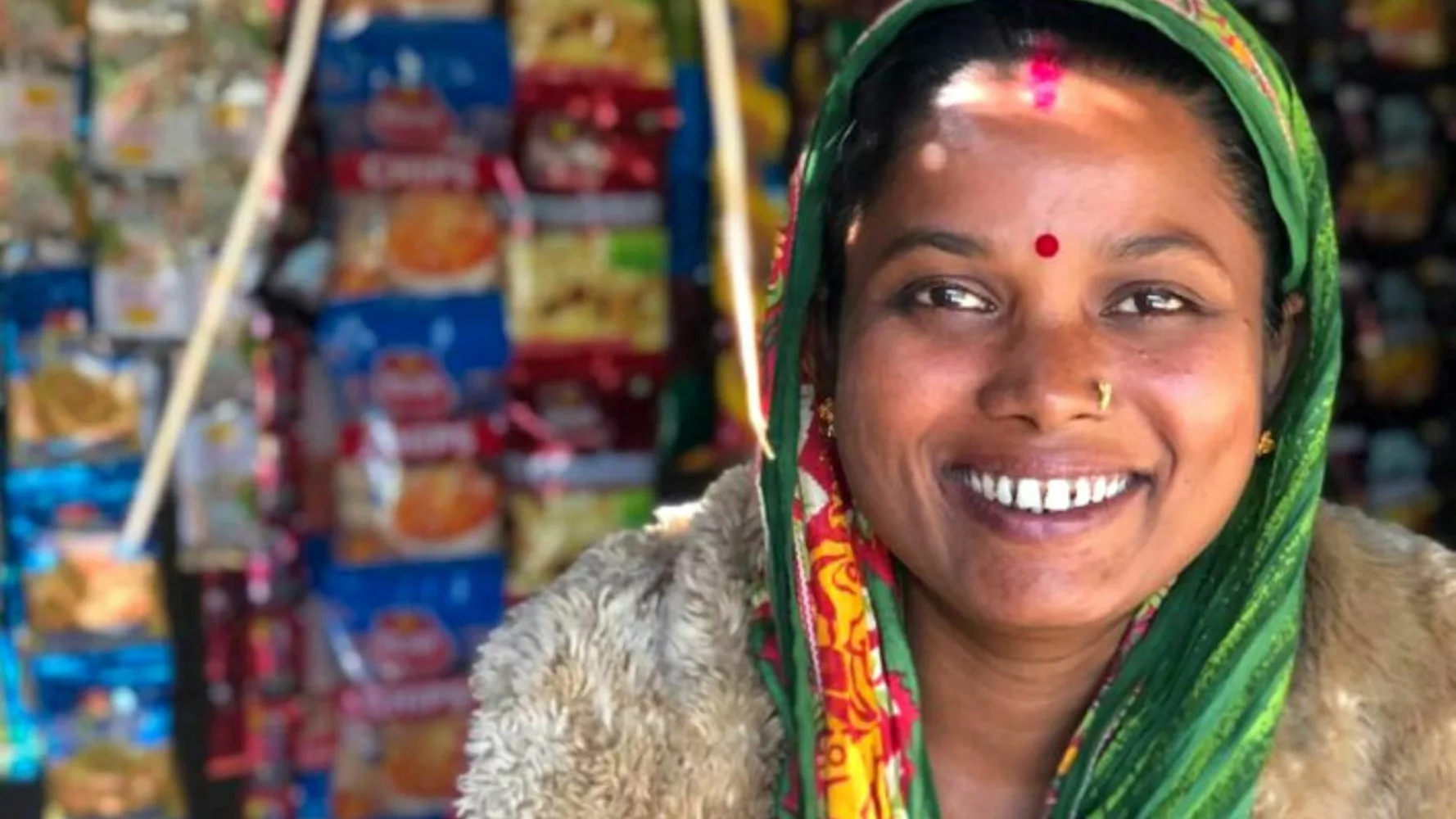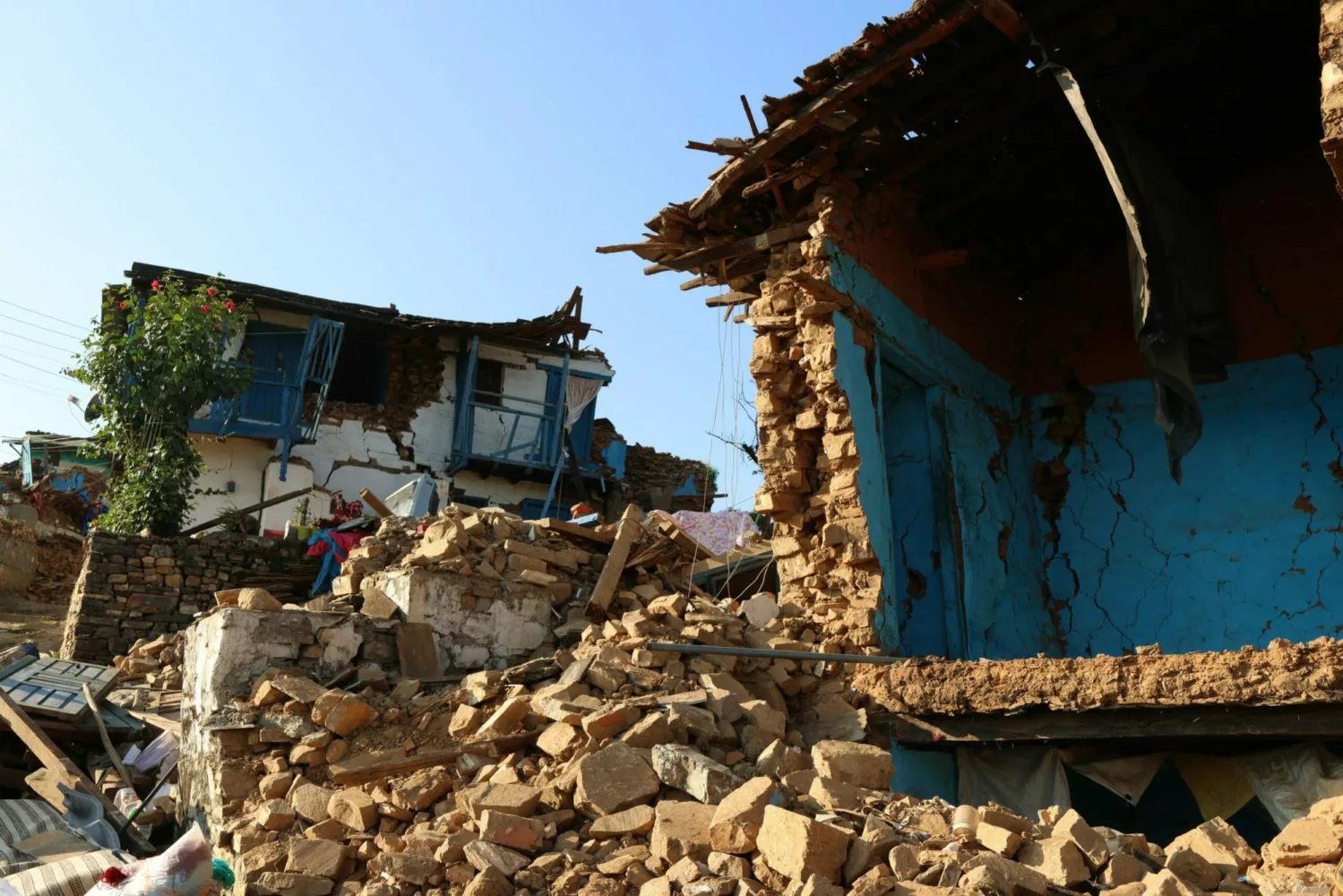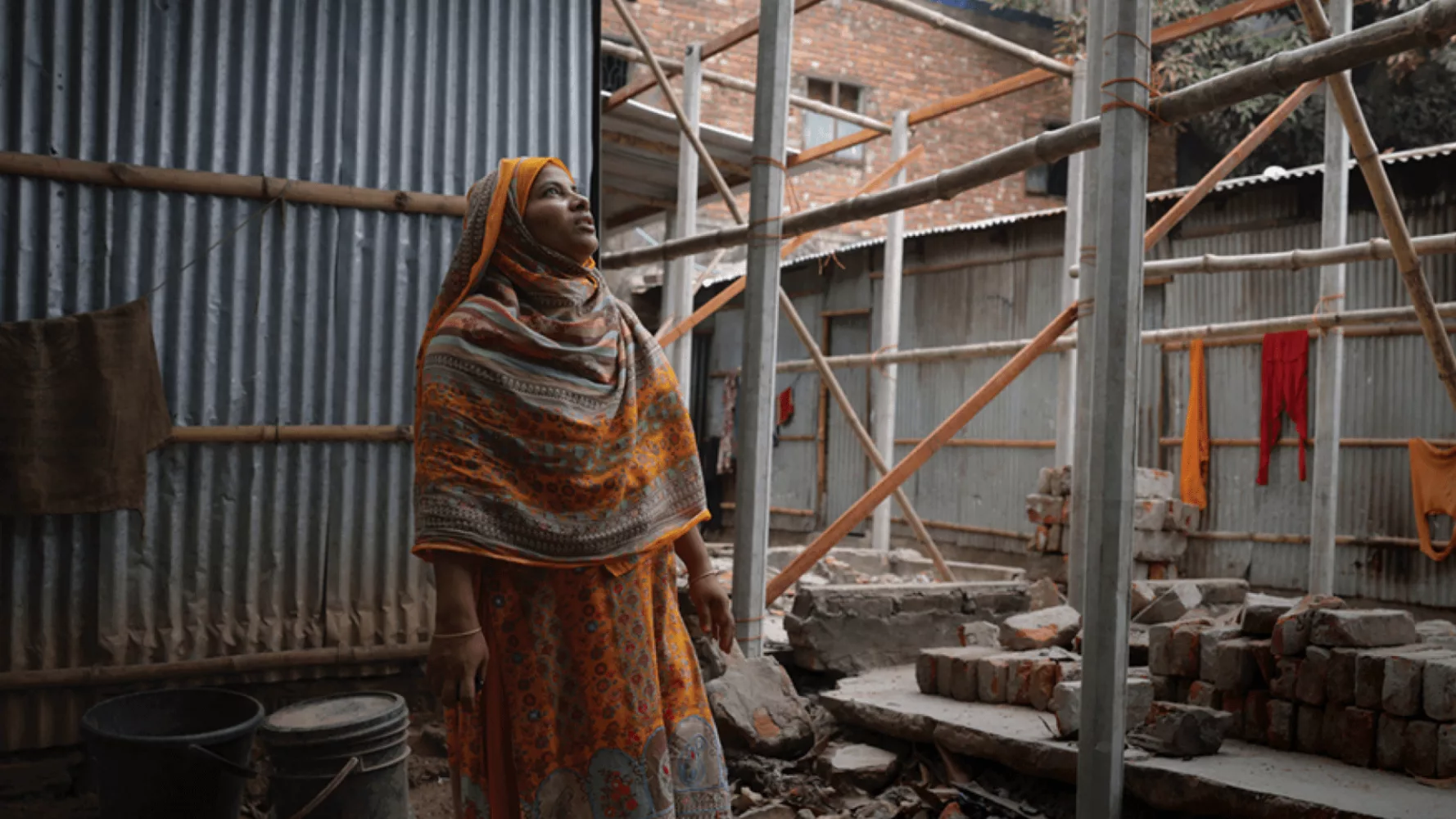For Palhashsada and her family, a safe and decent place to call home was considered out of reach.
A proud mother of four girls and a breadwinner in her family alongside her husband, Palhashsada belongs to one of the most marginalised communities in the eastern lowland region, Sambhunath Rural Municipality in Nepal.
Until a few years ago, Palhashsada and her family had been sheltering in a temporary refuge made of hay and mud. It was an impossible dream to buy land and build her own house, only earning between $1.90 - $2.50 NZD a day.
Palhashsada would take on several seasonal agricultural jobs to provide for her daughters, walking nearly three hours each day to the jungle to fetch heavy bundles of wood to sell at the markets, carrying them on her head.
When the Habitat Nepal team started the construction of homes in Sambhunath, Palhashsada was delighted to become the new homeowner of a cement, bamboo framed home. Her and her husband rolled up their sleeves and helped build the home alongside Habitat.
Owning a decent home freed Palhashsada and her husband to focus on other priorities.
Now two of their daughters are doing their undergraduate courses in Nepal’s capital city, and the younger ones are in high school in Saptari. Palhashsada is proud to give her daughters the opportunity she never had.
"This whole process of owning a home has been incredibly exciting and emotionally rewarding for our family. I am the only woman in my community to be able to provide an education for my daughters and help them to reach university!"
Over a period of two years, Habitat Nepal has worked with 14 families in Saptari, Sambhunath Rural Municipality, to build cement bamboo framed cottage homes.
This is how Habitat's work ensures long-term, generational impact.
With your support, we can ensure more Nepali women like Palhashsada can not only access a safe and decent place to live, but are financially empowered.
If you wish to make a donation via credit card over the phone, please phone us on (09) 579 4111
You can donate via internet banking:
Habitat for Humanity New Zealand
ANZ
06-0177-0127197-00
If you wish your donation to go to a specific appeal please include in the payment Reference
If you make a donation on our website your receipt will be emailed to you automatically.
If you choose to donate via internet banking, you will receive your receipt via email 1-2 days after you make your donation. If no email address is given, your receipt will be posted to the address given.
Donations over $5.00 are tax deductible. You can submit your receipt to IRD website, and they will process your tax rebate.
Habitat for Humanity New Zealand has partnered with Supergenerous making it easier for your generosity to support our mission.
All your charitable donations are tax deductible. By claiming your end-of-year tax credit and gifting it back to Habitat, you’re making your original donation to us go even further.
Supergenerous is authorised by the IRD to claim your tax credit on your behalf, and donate back to your chosen charity.
Yes, you can give regular monthly donations to your chose Habitat for Humanity appeal. Just select 'give monthly' when processing your donation payment.
You can change, cancel or suspend your monthly donation at any time. Please email us at info@habitat.org.nz, or phone us on (09) 579 4111.
Your credit card will be charged once you submit your first monthly gift, and future donations will be made on that same day going forward. If you wish to change your payment date to better suit your pay cycle, please get in touch via information@habitat.org.nz, or phone us on (09) 579 4111 and we can easily action that for you.
Yes, you will receive an annual tax receipt at the close of the financial year, recording all donations.
Yes, if you wish to donate via internet banking, our details are
Habitat for Humanity New Zealand
ANZ
06-0177-0127197-00
If you wish your donation to go to a specific appeal, please enter into your Reference
One tax receipt recording all your donations for the financial year, making it easy to claim your tax rebate.
With small payments spread out month to month, becoming a HopeBuilder can suit any budget. Even a small amount can have a huge impact.
Your donation occurs automatically each month, and you can pause, downgrade, upgrade, or cancel at any time.
Your regular support ensures long-term impact, all year long.
Please fill in the below enquiry form and we will be in touch soon.
Please fill in the below enquiry form with your details and we will be in touch within 2 working days.



